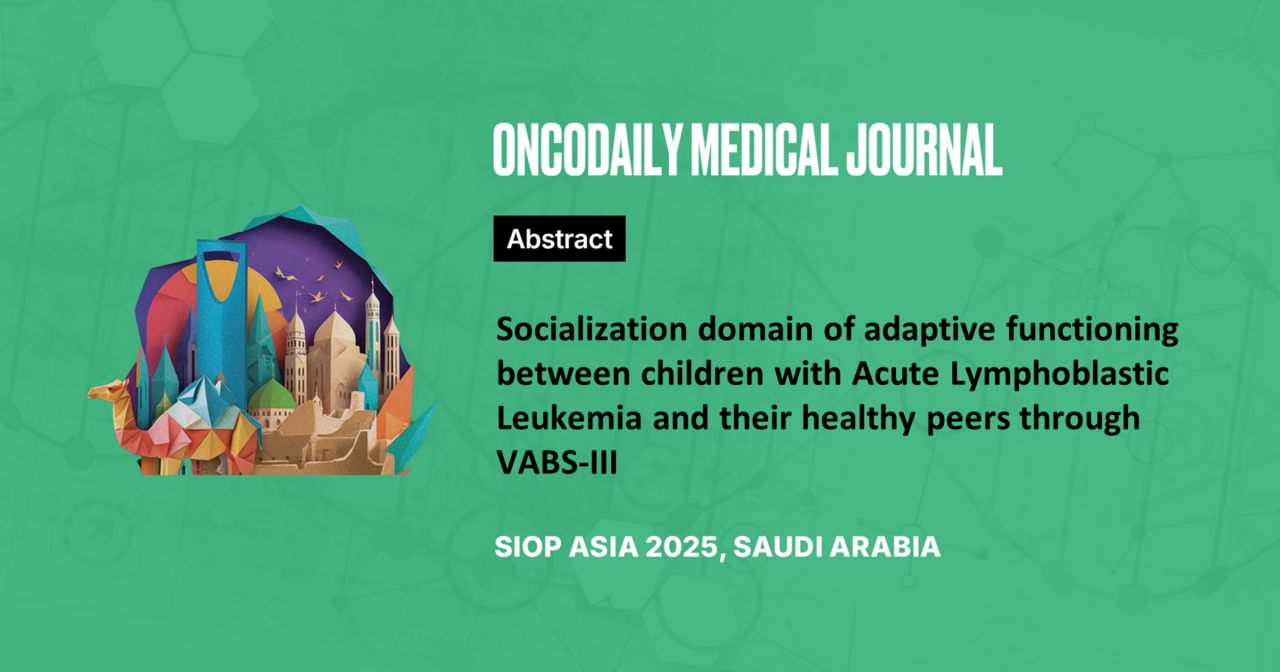Socialization domain of adaptive functioning between children with Acute Lymphoblastic Leukemia and their healthy peers through VABS-III
Abstract
Introduction: This study focuses on the socialization of children with leukemia who have been successfully treated and compares their socialization skills with those of healthy peers. Identify the childhood leukemia survivors with socialization impairments
Methodology: A sample of 50 ALL patients (who have been off treatment for at least 6 months) were identified at IHHN between 12 – 18 years old, 24 males and 26 females. Each patient with one healthy sibling was enrolled in the control group of 50 non-cancerous adolescents. Instruments administered were the ascent form, demographic form, and Vineland Adaptive Behavior Scale. VABS is widely used to assess adaptive functioning. The calculated score for socialization skills was categorized into adequate and low.
Results: Odds ratios (ORs) for low socialization skills in patients with cancer compared to non-cancer patients were 2.5926 (95% confidence interval: 0.44, with a P-value of 0.2915). This suggests that patients who had been through ALL treatment have roughly twice the odds of developing lower socialization scores compared to their healthy peers. Results of survivors indicated 27 fell in the adequate range and 4 in the low range; however, among healthy peers, 35 fell in the adequate range and 2 in the low range.
Conclusion: This study illustrates how chronic illness affects children’s socialization. Nonetheless, we can offer cancer patients interventions if we comprehend their demands.More research is needed to determine how cultural variables impact pediatric cancer patients’ adaptive abilities, particularly in the long run.
It is also necessary to determine how parents of these patients may display relapse anxiety and keep their kids from interacting with others or participating in other activities.It is possible to help children with cancer socialize better and work with support services in a timely manner, enabling them to engage with friends and family without difficulty.





